Eye Allergies in Children
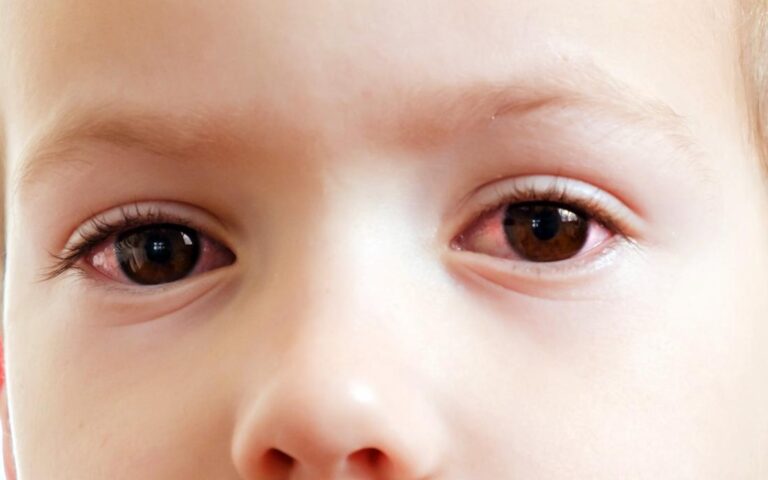
Eye allergies can be irritating and uncomfortable for everyone, especially children. Eye allergies are common in kids and cause Itchy, watery and red eyes typically. Exposures to allergens, environmental irritants, or infections are the most common causes that are typically found triggering the irritation. Typically, allergies affect both eyes at the same time.
Eye allergies occur when allergens enter into the eye. The most common allergens include pollen, mold, dust, and pet dander. These trigger inflammation which causes the area around the eye to become red and inflamed. As a natural response, the child’s eyes might also water as they try to flush out the allergens.
Identifying symptoms of eye allergies in children
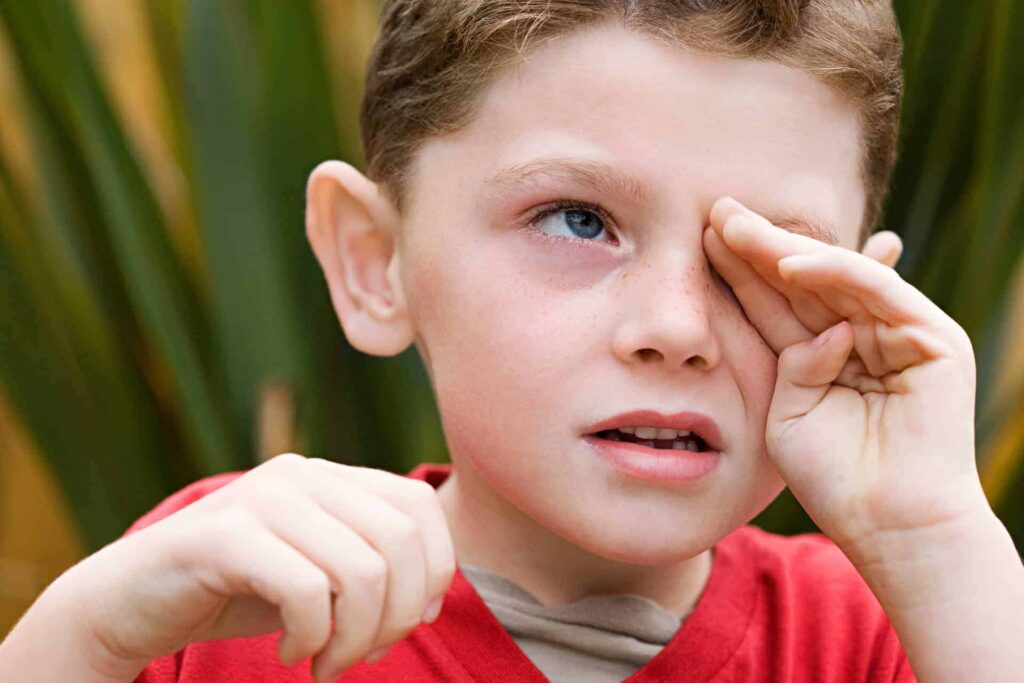

The most common symptoms of eye allergies in children include:
- Itchiness or burning in the eye
- Redness around the eye
- Swelling of the eyelids
- Redness of the eyelids
- Watery eyes
- Swollen eyelids
- Excessive tearing and sometimes slight discharge
- Excessive rubbing of the eyes
- No discharge or a minimal sticky, stringy, mucus discharge
- No pain or fever
Some children may also have symptoms of hay fever including as sneezing or coughing.

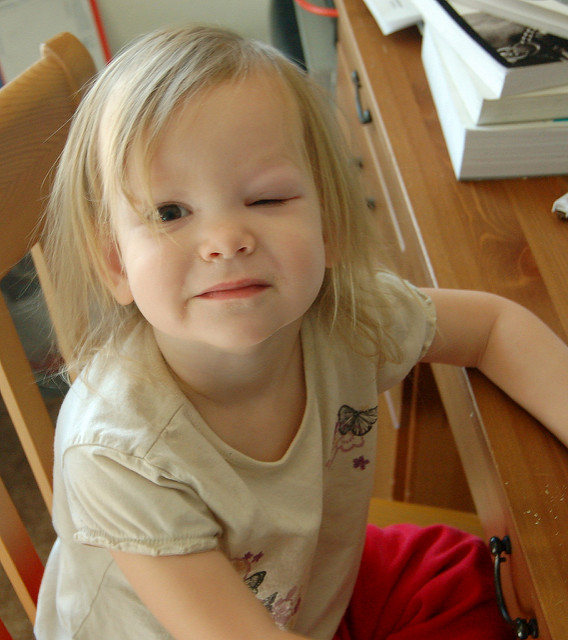
Diagnosing Eye allergies
It is very important to not mix up the symptoms of eye allergies with eye infection, conjunctivitis or pink eyes. An eye specialist is the best person who can correctly diagnose eye allergies by analyzing their symptoms and can provide the correct treatment recommendations.
An eye doctor will first perform a physical examination of the child’s eyes. Doctor can also ask questions to child or the parents to check medical history of child and family’s history of allergies. This information is very useful to determine the exact cause of eye allergy.
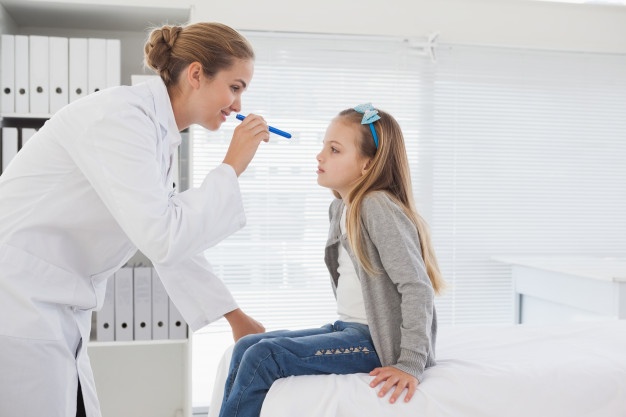
Treating Eye allergies
A treatment of eye allergy in children is mainly depending on the type of allergy, causes of allergy and severity of eye allergy. To provide proper treatment, eye specialist doctor will check to see if child has an eye infection or allergic conjunctivitis.
After the precise diagnosis of eye allergy, an eye specialist doctor prescribes oral allergy medicines or eye drops to get relief from symptoms.
Artificial tear drops help to relieve eye allergies temporarily by washing allergens from the eye. They also relieve dry, irritated eyes by adding moisture.
Eye Specialist doctor determines which treatments are best for your child.
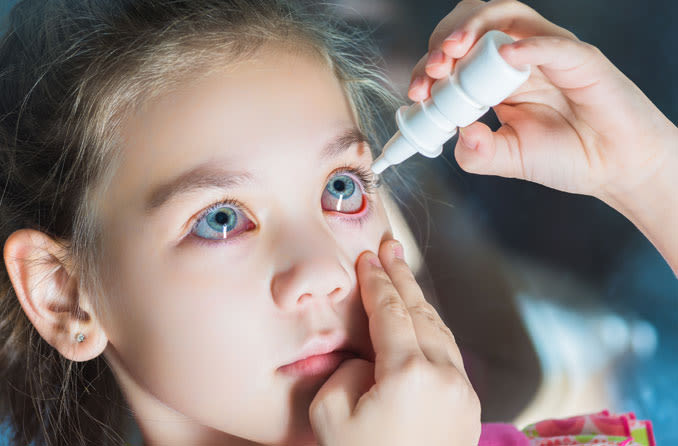
Preventing eye allergies in children
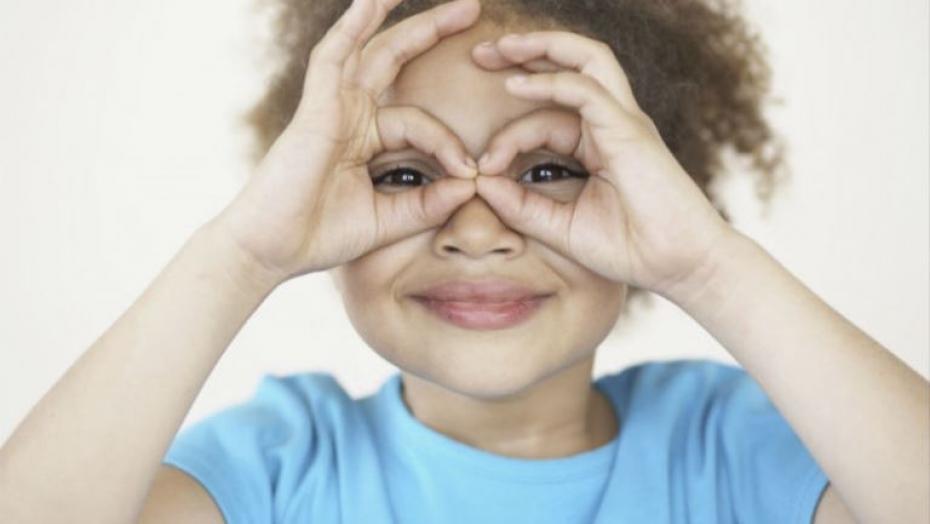
To prevent eye allergies in children exposure to allergens has to be minimized. This can be done by:
- Avoiding contact with known allergens
- Encouraging kids to wear hats and sunglasses to protect their eyes
- Encouraging kids to washing hands frequently, particularly during allergy season or when outdoors.
- Reminding them not to touch their eyes
- Closing windows and minimizing time outside during pollen season
- Switching the child to glasses rather than contacts to minimize irritation
- Maintaining proper body hygiene, especially hair to remove any allergens
When a child has a history of allergies, the best way to get ahead of their symptoms is through prevention which can include giving them doctor’s recommended allergy medication and taking steps to reduce exposure to allergens at home and when they are outside. If the symptoms do not go away or other signs appear, visit your eye specialist in order to identify the cause of the eye irritation and to get the right treatment.
